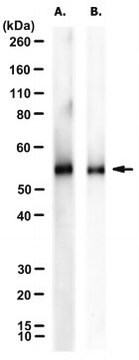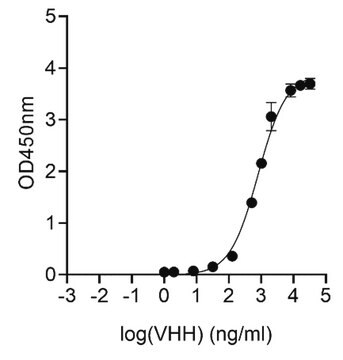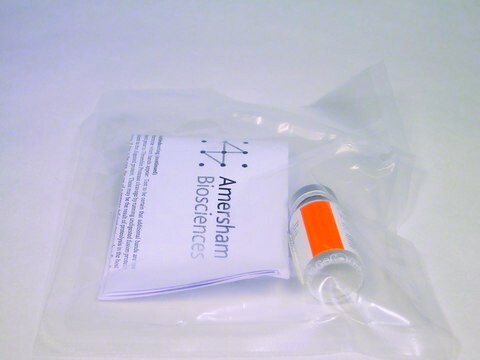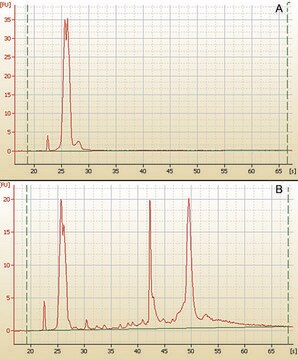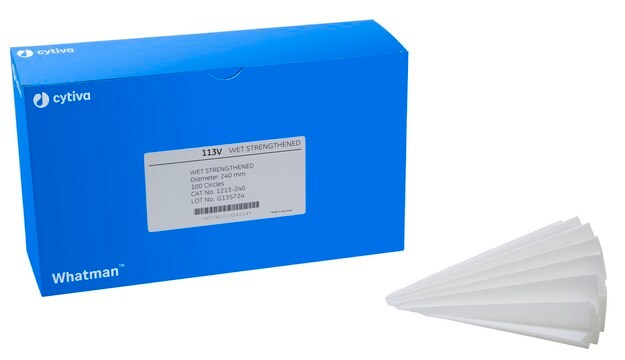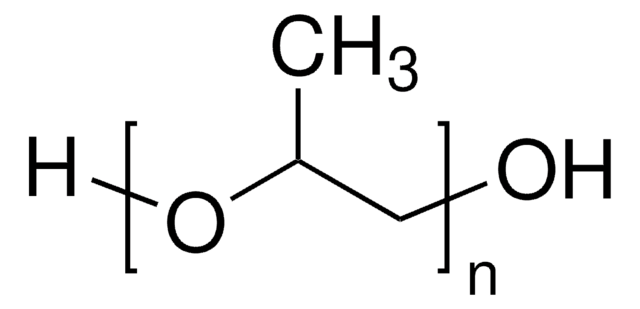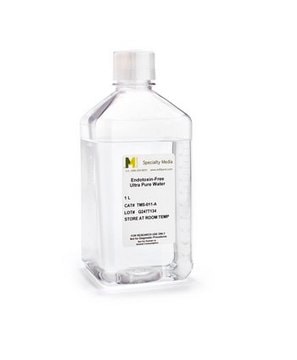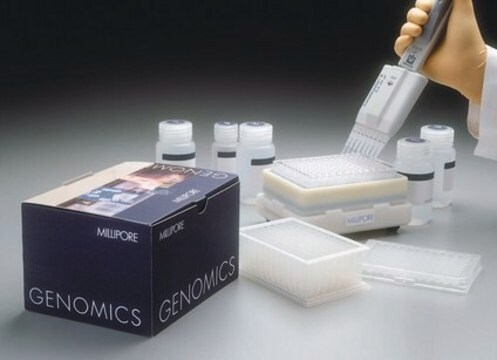MABN2402
Anti-Tau Antibody, clone 10C5

Sinônimo(s):
MAPTL, MTBT1, Neurofibrillary tangle protein, PR-1, Paired helical filament-tau (PHF-tau), TAU
About This Item
Produtos recomendados
fonte biológica
mouse
Nível de qualidade
forma do anticorpo
purified antibody
tipo de produto de anticorpo
primary antibodies
clone
10C5, monoclonal
peso molecular
calculated mol wt 79 kDa
observed mol wt ~57 kDa
purificado por
using protein G
reatividade de espécies
human, mouse
embalagem
antibody small pack of 100
técnica(s)
ELISA: suitable
immunohistochemistry: suitable
western blot: suitable
Isotipo
IgG2bκ
sequência de epítopo
N-terminal half
nº de adesão de ID de proteína
nº de adesão UniProt
temperatura de armazenamento
2-8°C
Informações sobre genes
human ... MAPT(4137)
Categorias relacionadas
Especificidade
Imunogênio
Aplicação
Evaluated by Western Blotting with His-tagged, Human recombinant Tau, isoform 1N4R. Western Blotting Analysis: A 1:1,000 dilution of this antibody detected His-tagged, Human, recombinant Tau isoform 1N4R.
Tested Applications
Enzyme Immunoassay (ELISA): Serial dilutions from a representative lot detected Tau monomers or Tau aggregates induced with arachidonic acid in ELISA (Courtesy of Nicholas Kanaan, Ph.D., Michigan State University, USA).
Western Blotting Analysis: A representative lot detected recombinant, human Tau isoform 2N4R monomers and aggregates, 2N3R monomers and aggregates, and mouse Tau monomers. (Courtesy of Nicholas Kanaan, Ph.D., Michigan State University, USA).
Immunohistochemistry Applications: A representative lot detected Tau in Alzheimer′s diseased (AD) brain (superior temporal cortex, STG) tissue sections. Human disease sections had to be treated with phosphatase (dephosphorylates tau) to obtain reactivity suggesting tau in human AD is phosphorylated at its epitope. (Courtesy of Nicholas Kanaan, Ph.D., Michigan State University, USA).
Note: Actual optimal working dilutions must be determined by end user as specimens, and experimental conditions may vary with the end user.
Descrição-alvo
forma física
Reconstituição
Armazenamento e estabilidade
Outras notas
Exoneração de responsabilidade
Não está encontrando o produto certo?
Experimente o nosso Ferramenta de seleção de produtos.
Certificados de análise (COA)
Busque Certificados de análise (COA) digitando o Número do Lote do produto. Os números de lote e remessa podem ser encontrados no rótulo de um produto após a palavra “Lot” ou “Batch”.
Já possui este produto?
Encontre a documentação dos produtos que você adquiriu recentemente na biblioteca de documentos.
Nossa equipe de cientistas tem experiência em todas as áreas de pesquisa, incluindo Life Sciences, ciência de materiais, síntese química, cromatografia, química analítica e muitas outras.
Entre em contato com a assistência técnica